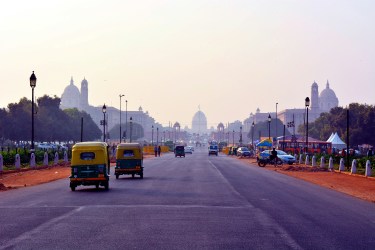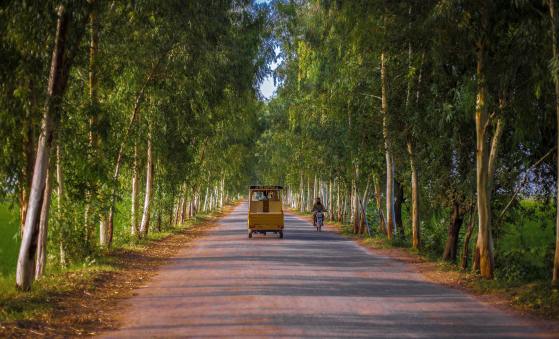
The United States Commission on International Religious Freedom (USCIRF) has released a report stating that the relationship between the ruling Bharatiya Janata Party and the Rashtriya Swayamsevak Sangh has enabled the creation of laws that discriminate against India’s religious minorities.
The bipartisan US Congress-backed body released an India-specific issue update claiming that national and state-level laws have imposed severe restrictions on religious freedom across the country. Despite constitutional protections for freedom of religion or belief, the report concludes that India’s political structures have created conditions that discriminate against religious minority communities.
The Union government had not responded to the report at the time of publication. However, when USCIRF released its 2025 annual report in March this year, the Ministry of External Affairs dismissed it, claiming the US body was continuing “its pattern of issuing biased and politically motivated assessments”. MEA spokesperson Randhir Jaiswal had said USCIRF’s “persistent attempts to misrepresent isolated incidents and cast aspersions on India’s vibrant multicultural society reflect a deliberate agenda rather than a genuine concern for religious freedom”.
The commission found that the interconnected relationship between the BJP and the RSS has led to the creation and enforcement of several discriminatory pieces of legislation, including citizenship, anti-conversion and cow slaughter laws. Since 2014, the BJP has pursued policies that seek to redefine India as a Hindu-majority state, diverging from constitutional commitments to secularism, according to the report.
The report states that the RSS’s primary mission is to build a “Hindu Rastra” or Hindu state, promoting the notion that India is a Hindu nation whilst excluding Muslims, Christians, Jews, Buddhists, Parsis and other religious minorities. Whilst the RSS does not field political candidates directly, it provides volunteers to campaign for the BJP, including Prime Minister Modi himself.
Modi was an RSS youth member before serving as chief minister of Gujarat from 2001 to 2014, where he faced accusations of inaction during anti-Muslim riots in 2002 that resulted in thousands of deaths. In 2005, the US government banned Modi from entering the United States under the 1998 International Religious Freedom Act, citing his responsibility in “severe violations of religious freedom” during the Gujarat riots. This ban was lifted once Modi was elected prime minister.
According to lobbying disclosures filed with the US government, the firm Squire Patton Boggs was paid $330,000 during the first three quarters of 2025 to represent the RSS’s interests before the US Senate and House of Representatives.
The report highlights that in 2019, the Citizenship (Amendment) Act provided fast-tracked citizenship to persecuted religious groups from neighbouring countries whilst explicitly excluding Muslim migrants. It also notes that Article 295A of the Penal Code functions as a blasphemy law by criminalising actions deemed to “outrage religious feelings”. Several states also maintain and enforce anti-conversion and cow slaughter laws that impose harsh fines and lengthy prison sentences.
According to the report, hundreds of Christians and Muslims have been arrested under anti-conversion laws, with 70 per cent of India’s inmates being pre-trial detainees and religious minorities disproportionately represented. The report cites the case of Umar Khalid, who has been detained since 2020 for leading peaceful protests opposing the religiously discriminatory Citizenship (Amendment) Act, as an example of religious minorities spending years in jail without trial.
India’s federal political system gives state governments jurisdiction over law enforcement, whilst the national Central Bureau of Investigation cannot investigate state-level crimes without state government permission. This structure creates limited accountability for state-perpetrated violations of human rights, with law enforcement often failing to address mob violence targeting Christian and Muslim communities, the update explains.
The USCIRF asserted that enforcement of these laws disproportionately targets and impacts religious minorities and their ability to freely practise their religion or belief as outlined in Article 18 of the International Covenant on Civil and Political Rights, to which India is a signatory.
In its 2025 Annual Report, USCIRF for the sixth time recommended that the US Department of State designate India as a Country of Particular Concern for engaging in systematic, ongoing and egregious religious freedom violations. The State Department has so far not acted on this recommendation.




